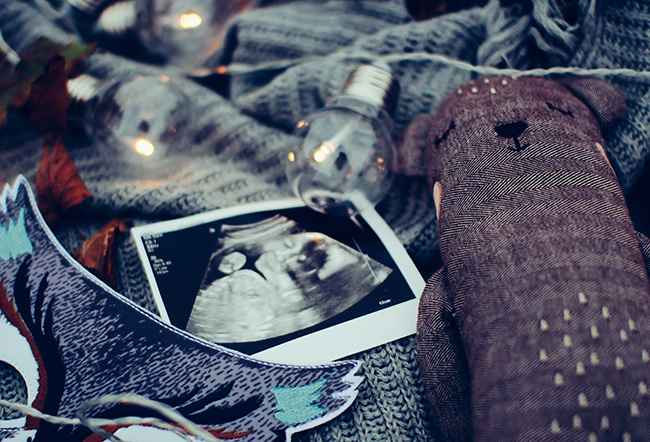We continue exploring your baby’s world in the womb by considering the research of Dr. Patricia Kohl, from Seattle. Her work tells us that your baby begins to learn language as early as four months in utero. Kohl’s studies show that immediately after birth, your baby will responds to your voice and language, even when exposed to multiple languages and multiple female voices.
As a result, if you talk, read, and sing to your baby in utero, while he is learning and growing inside your womb, not only will he respond to your native language after birth, but also to the stories read to him while he was developing in your womb.
Through new technology and ultrasound, we can now see the hidden world of the womb and watch your baby as he practices and rehearses sucking, breathing, exercising, seeing, blinking, and opening his eyes preparing for birth (source: Laura Flynn Mccarthy, What Babies Learn in the Womb).
Furthermore, as a mother, you most likely know that your baby is reactive to the things that your eat and smell, whether sweet or sour, spicy or bitter. Your baby will also suck the walls of the placenta, when sweet is introduced to your diet. And, because your nutritional preferences pass through the wall of the placenta through the amniotic fluid, it impacts the taste buds for evermore. So, if you enjoy a varied diet, your baby is more likely to accept a menu of different foods after birth.
Your baby is highly sensitized to your smell, which is the most familiar and powerful connection to his life in the womb. Thus, after birth, when he is placed on your tummy, between your breasts, he will follow your smell, as he roots toward your breast for feeding.
Finally, as you might suspect, it appears that your baby really does dream. Through ultrasounds, we can see that babies experiences REM sleep, that Rapid Eye Movement connected to a dream state. This first occurs about 32 weeks in utero. Also, through ultrasound, we can view your baby as he enters an alert period, where he appears to be thinking and focusing.
While in utero, your baby explores and investigates everything that is available to him within his grasp and reach.
By four months, your baby responds to his environment. By about five months, he shows a unique curiosity to the world around him. For example, your baby will suck on and play with his appendages and digits his is thumb will not only be his most fascinating digit, but also the one he will most likely favor for the rest of his life.
Also, your baby will play with whatever he can get his hands on, including his umbilical cord, from which he may even swing himself, back-and-forth. Your baby also jumps up and down, literally bouncing off the uterine wall, and walks around the womb, stabilizing himself against the placenta.
It is in this way that your baby strengthens his reflexes and muscles preparing for his sojourn through the birth canal and the long journey to reach mother’s breasts after birth. All of these efforts by your baby are teaching moments, helping him develop the skills necessary for birth. For example, opening and closing his eyes, blinking and sucking, are all important developmental stages that your baby must successfully pass through and master, to live outside the womb.
During gestation and after birth, your baby is all mouth. For it is his mouth that is his essential mode of discovery. In fact your baby will experience and explore the world around him primarily to the sensations and feelings available to him, in his mouth.In the final analysis, technology teaches us that your baby is not just an inert lump of tissue, waiting to be born. Rather, he is a viable baby, developing, practicing, and rehearsing the behavior important to his survival, while attaching deeply to the one person who can help him survive: you, his mother.


